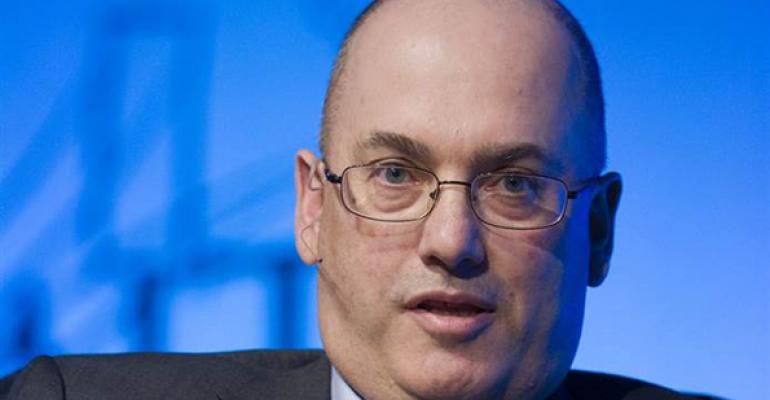By Saijel Kishan
(Bloomberg) --Steven A. Cohen got rich by going with his gut on big trades. Now the billionaire trader is experimenting with another path: automating the decisions of his best money managers.
Cohen’s Point72 Asset Management, which oversees his $11 billion fortune, is parsing troves of data from its portfolio managers and testing models that mimic their trades, according to people familiar with the matter.
The wave of automation that’s sweeping finance, initially relegated to taking over mundane tasks, is starting to encroach the ranks of prized money managers who are among the industry’s highest paid. Cohen is pursuing this effort after producing his second-worst year as a trader and as he prepares to return to the hedge fund industry at a time of intense investor pressure on fees.
Unabashed in his view that the industry is short of talent, Cohen has ramped up the project over the past year or so, said the people, who asked not to be named discussing internal matters.
Using analyst recommendations as an input, the effort involves examining the DNA of trades: the size of positions; the level of risk and leverage; and whether an investment was hedged, said one of the people. It also entails looking at the timing of trades, assessing pricing and liquidity in the market, and the duration over which managers build positions.
The model will identify patterns and relationships based on those analytics and seek to replicate bets, the people said. Point72 is also experimenting with automating the work of its execution traders, who place buy and sell orders with brokers on behalf of money managers.
Cohen’s former hedge fund, SAC Capital Advisors, had a quant group that sought to amplify the firm’s profits by using algorithms that replicated the trades of its best-performing managers. The model used leverage to help boost profits and managers were able to take a cut of the money made.
At SAC, portfolio managers earned about 15 percent to 25 percent of profits they generated. Top performers took home as much as 30 percent -- which routinely translated into eight-figure payouts annually. Last year, Cohen changed the bonus structure with Point72 managers earning as much as 25 percent but only on the money they make above a market benchmark, or so-called alpha.
Mark Herr, a spokesman for Stamford, Connecticut-based Point72, declined to comment on the automation project.
Tough Times
Firms across finance are developing technologies to help their business. At Bridgewater Associates, the world’s largest hedge fund, a key project underway involves developing algorithms based on employee data to help automate management decision-making. JPMorgan Chase & Co. is investing in automated technology to streamline systems. One program, called COIN, for Contract Intelligence, interprets commercial-loan agreements that once consumed thousands of hours of work each year by lawyers and loan officers.
Cohen’s efforts come as Point72 suffered along with other multimanager firms by posting a 1 percent gain last year. The performance was a rare setback for the trader, who at SAC averaged returns of about 30 percent annually and posted only one losing year, in 2008. SAC was forced to stop managing money for clients as part of a $1.8 billion insider-trading settlement with the government four years ago.
His new firm, Stamford Harbor Capital, is working with an outside marketing company that’s meeting with potential clients to gauge interest in investing in hedge funds that could be started as soon as next year.
Even with the automation efforts, Cohen said at a conference last year it will be some time before technologies such as artificial intelligence displace people. Others agree.
“The risk of automation is that the programs could go haywire,” said Jason Kennedy, founder of London recruitment firm Kennedy Associates, which places portfolio managers and analysts at hedge funds. “When you have one computer playing against another, you could end up with something resembling the flash crash.”
To contact the reporter on this story: Saijel Kishan in New York at [email protected] To contact the editors responsible for this story: Margaret Collins at [email protected] Alan Mirabella, Josh Friedman





